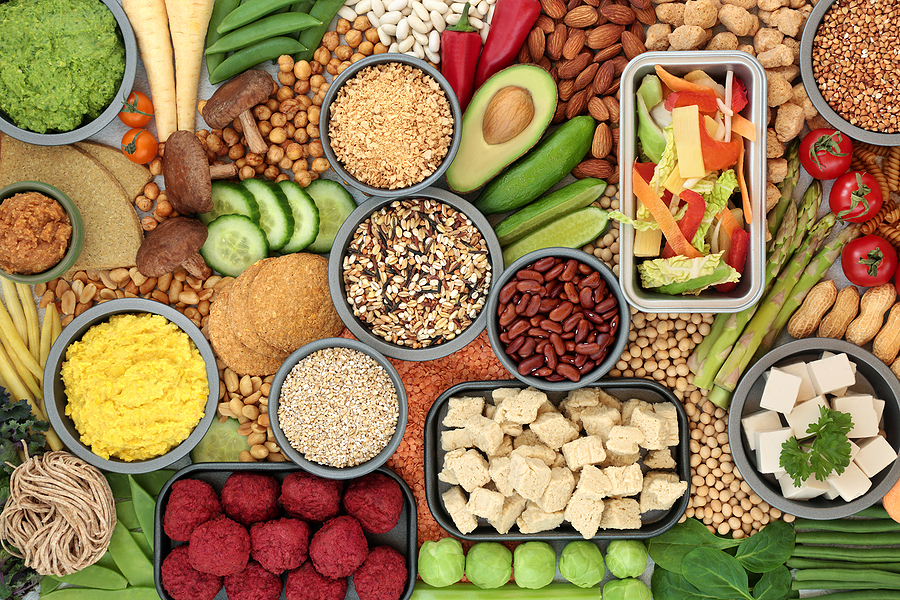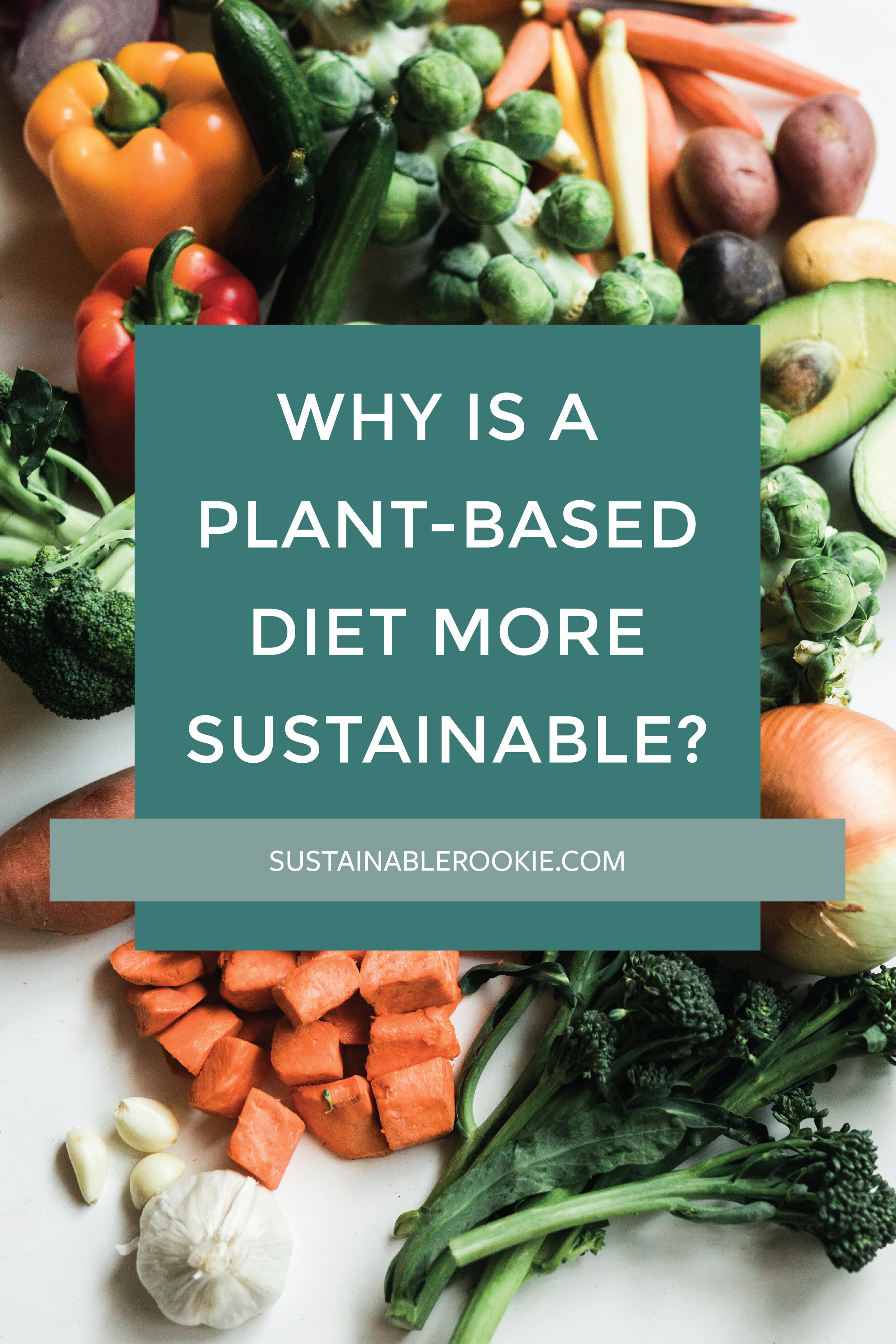All Regarding Healthy And Balanced Food: Benefits of Embracing Plant Based Choices
The conversation bordering plant-based diets has gotten substantial interest in recent times. Several individuals are checking out the potential health benefits, dietary advantages, and ecological influences associated with these dietary selections. As people become much more familiar with their food's influence on wellness and sustainability, concerns occur about the functionalities of taking on such a way of life. What certain adjustments can one anticipate, and how might these choices reshape not just individual wellness however likewise the planet's future?
Comprehending Plant-Based Diet Plans
Although many individuals associate plant-based diets generally with vegetarianism or veganism, these diet regimens can include a vast array of eating patterns that prioritize entire, minimally processed plant foods. Such diet plans typically consist of fruits, veggies, entire grains, nuts, legumes, and seeds, while restricting or getting rid of pet items. This adaptability allows individuals to customize their dietary choices according to individual preferences and nutritional demands. Some might take on a largely plant-based diet regimen while still occasionally consuming meat or dairy products, commonly described as a flexitarian technique. The focus remains on including more plant foods, which can bring about a varied array of meals and flavors. Understanding these numerous analyses of plant-based eating is essential for appreciating its ease of access and appeal in modern food society.
Health And Wellness Conveniences of Plant-Based Foods
The health and wellness benefits of plant-based foods are significant, using a nutrient density benefit that sustains overall wellness. Research indicates that these foods can enhance heart health and play an essential role in efficient weight administration. By integrating a lot more plant-based options, people might enhance their dietary options and promote long-term health.
Nutrient Thickness Benefit
Nutrient density plays a necessary role in the health benefits of plant-based foods, making them an engaging selection for those looking for a balanced diet plan. Plant-based foods, such as fruits, vegetables, legumes, nuts, and whole grains, are typically rich in crucial vitamins, minerals, and anti-oxidants while being reduced in calories. This high nutrient thickness permits people to eat less calories while still satisfying their dietary requirements. In addition, these foods are loaded with dietary fiber, promoting digestive system wellness and aiding in weight monitoring. By integrating nutrient-dense plant-based choices, customers can improve their general wellness, support their body immune systems, and decrease the danger of chronic diseases. Ultimately, the nutrient density of plant-based foods emphasizes their significance in a health-conscious way of living.
Heart Wellness Renovation

Weight Management Assistance
In addition to promoting heart wellness, a plant-based diet plan can significantly help in weight management. This nutritional method highlights entire foods such as fruits, vegetables, beans, nuts, and entire grains, which are typically reduced in calories and higher in fiber compared to animal-based items. The high fiber web content aids increase satiation, lowering general calorie intake. Plant-based diet plans are commonly abundant in crucial nutrients while reduced in undesirable fats, making it less complicated to preserve a healthy weight. Research suggests that individuals who embrace a plant-based way of living often tend to have lower body mass indexes (BMIs) and experience more effective weight management compared to those who eat meat-heavy diets. Embracing plant-based alternatives is a tactical choice for reliable weight management.
Nutritional Value of Plant-Based Components
Plant-based ingredients are rich in necessary nutrients, providing a varied array of vitamins, minerals, and anti-oxidants that add to total health. A contrast of protein sources discloses that while pet products are typically viewed as superior, several plant-based alternatives give ample protein and other advantageous substances. Understanding the nutritional worth of these ingredients can help individuals make informed dietary selections.
Important Nutrients in Plants
Nutrient-rich ingredients located in plants use a diverse range of crucial vitamins and minerals that add greatly to total health and wellness. These components are abundant in vitamins A, C, and K, which sustain immune function, vision, and blood clotting, respectively. Additionally, plants offer crucial minerals such as calcium, magnesium, and potassium, essential for heart health, muscle mass function, and bone strength. The presence of fiber in plant-based foods help digestion and promotes a healthy digestive tract microbiome. Antioxidants, located perfectly in veggies and fruits, help fight oxidative stress and anxiety and reduce swelling. Additionally, lots of plant foods are low in calories yet high in nutrients, making them a superb option for those seeking to preserve a healthy weight while ensuring excellent nutrient consumption.
Contrasting Protein Sources
Protein resources vary substantially in their nutritional profiles, with plant-based active ingredients using one-of-a-kind advantages. Unlike animal proteins, which usually consist of saturated fats and cholesterol, plant proteins have a tendency to be reduced in these unhealthy elements. Legumes, nuts, seeds, and entire grains are abundant in essential amino acids, fiber, vitamins, and minerals. For instance, lentils offer high healthy protein web content along with significant iron and folate, while quinoa is a full protein, offering all 9 vital amino acids. Additionally, plant-based proteins are often gone along with by antioxidants and phytochemicals that support general wellness. The change to plant-based healthy protein resources not only boosts nutritional consumption however additionally straightens with sustainable dietary practices, minimizing ecological impact and advertising long-term wellness benefits.
Ecological Effect of Plant-Based Eating
As recognition of climate modification grows, several people are checking out sustainable nutritional options that can greatly lessen their ecological footprint. Plant-based consuming has actually become a substantial factor to decreasing greenhouse gas discharges, which are mostly related to livestock manufacturing. The farming of fruits, vegetables, beans, and grains typically requires fewer sources, such as water and land, compared to animal farming. In addition, plant-based diets can cause lowered deforestation, as much less land is needed for grazing livestock or expanding animal feed. By shifting in the direction of plant-based choices, consumers can sustain biodiversity and advertise much healthier environments. Overall, welcoming plant-based consuming not just benefits personal health and wellness however also stands for a crucial step towards environmental sustainability and conservation efforts.
Conquering Common Misconceptions
While lots of people recognize the advantages of a plant-based diet plan, several mistaken beliefs frequently hinder them from fully embracing this way of living. A typical belief is that plant-based diets lack sufficient protein; however, many plant resources, such as vegetables, nuts, and tofu, give adequate protein. Additionally, some presume that this diet regimen is costly, when in fact, staples like beans, rice, and seasonal vegetables can be quite cost effective. An additional misunderstanding is that plant-based consuming is overly restrictive, whereas it actually provides a varied range of foods and flavors. Numerous worry that a plant-based diet plan may lead to deficiencies, yet with correct planning, individuals can get all required nutrients, consisting of vitamins and minerals, while taking pleasure in a vast selection of delicious dishes. Large Tips for Transitioning to a Plant-Based Way of life
Making the shift to a plant-based way of living can be an improving experience, though it often calls for some assistance to navigate the first changes. Individuals are encouraged to begin gradually, including even more fruits, vegetables, legumes, and entire grains right into their meals while decreasing meat and dairy products consumption. Meal preparation is vital; preparing a weekly food selection can help ease the change and avoid last-minute unhealthy selections. Exploring cooking techniques and brand-new dishes can likewise enhance the experience and maintain exhilaration about plant-based consuming. In addition, joining support groups or neighborhoods can offer motivation and share important ideas. Staying informed about nutrition guarantees well balanced dishes, stopping shortages while cultivating a healthy, enjoyable plant-based way of living.

Delicious Plant-Based Dish Ideas
Checking out tasty plant-based meal ideas can influence individuals to embrace an extra healthy diet regimen. One popular alternative is a passionate quinoa salad, featuring cherry tomatoes, cucumber, and a tangy lemon-tahini dressing. Another fave is a savory lentil stew, packed with carrots, celery, and aromatic herbs, ideal for a soothing dinner. For morning meal, overnight oats made with almond milk, chia seeds, and covered Sugar Free Sauces with fresh berries supply a healthy start to the day. In addition, a lively veggie stir-fry with tofu and a range of colorful veggies can be a quick yet satisfying meal. Luscious avocado toast on whole-grain bread, sprayed with seeds and flavors, uses a straightforward yet savory treat. These meals showcase the variety and splendor of plant-based eating.

Often Asked Inquiries
Can a Plant-Based Diet Regimen Give Sufficient Healthy Protein?
The inquiry of whether a plant-based diet can supply sufficient healthy protein is common. Many sources, consisting of beans, nuts, seeds, and entire grains, can meet healthy protein needs effectively, supporting a healthy and balanced diet plan for people.
Are Plant-Based Diets Suitable for Kid?
The suitability of plant-based diet regimens for kids depends on mindful planning. Ample nutrients should be assured, consisting of vitamins, proteins, and minerals. With proper guidance, such diet plans can support healthy development and development in kids.
Just how Do I Eat in restaurants on a Plant-Based Diet plan?
Eating out on a plant-based diet includes looking for restaurants with varied food selections, requesting for adjustments, and checking out vegan-friendly alternatives. Preparation ahead and interacting nutritional preferences can boost the dining experience while maintaining dietary options.
What Are Typical Irritants in Plant-Based Foods?
Common allergens in plant-based foods consist of soy, gluten, nuts, and seeds - BBQ Sauces. People complying with a plant-based diet regimen ought to be aware of these allergens and check out tags thoroughly to avoid negative reactions and guarantee secure usage
Can Plant-Based Diets Aid With Weight Loss?
Research indicates that embracing a plant-based diet plan may facilitate weight management due to its typically lower calorie thickness and higher fiber web content. This combination can improve satiety, helping individuals manage their caloric consumption efficiently. Several individuals link plant-based diet plans mostly with vegetarianism or veganism, these diet plans can include a large array of consuming patterns that prioritize entire, minimally processed plant foods. Nutrient density plays a crucial role in the health benefits of plant-based foods, making them an engaging selection for those seeking a balanced diet plan. Plant-based diet regimens have been revealed to substantially improve heart health, as they often include elements that sustain cardiovascular function. In addition to advertising heart wellness, a plant-based diet regimen can considerably help in weight management. An usual idea is that plant-based diet plans lack adequate protein; nevertheless, many plant sources, such as vegetables, nuts, and tofu, provide enough protein.